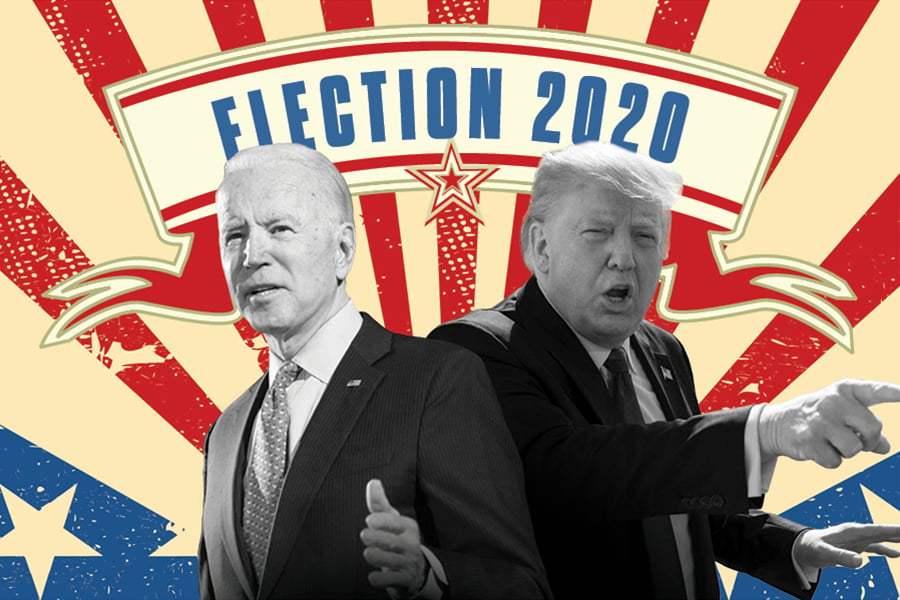

Trend lines look bad for President Donald Trump with less than a week to go before the election.
He’s trailing Democratic presidential nominee Joe Biden by significant margins in most national and battleground state polls. Coronavirus cases are spiking again, while the prospects for a pandemic stimulus package in Congress have faded.
But don’t count Trump out, said Greg Valliere, chief U.S. policy strategist at AGF Investments.
“You underestimate Donald Trump at your own peril,” Valliere said on Tuesday at the virtual Schwab IMPACT conference. “He has phenomenal energy.”
In 2016, Trump stunned Valliere and most other election analysts, who had predicted a victory for Democratic presidential nominee Hillary Clinton.
But this election differs from four years ago, Valliere said. This time, Trump is trailing Biden significantly in fundraising, facing a huge gender gap with female voters and losing support among seniors. Even more damaging is the unrelenting coronavirus pandemic.
Biden has the edge in what will likely be a close race, Valliere said. The candidate who attains 270 or more votes in the Electoral College will win the election.
“I make [Biden] the favorite to get about 300 electoral votes,” Valliere said. “That’s hardly a landslide but it should be a very narrow victory.”
Brian Gardner, chief Washington policy strategist at Stifel, also is predicting Biden will prevail by a slim electoral vote margin. He said Biden is polling better at this point in the race than Clinton was in 2016.
“If poll performance is similar to four years ago, Biden probably wins, but it’s going to be close,” Gardner told reporters recently.
One potential vulnerability for Biden as the race comes to a close is his tax plan, Valliere said. Biden is proposing to raise income taxes on people making more than $400,000 and boost capital gains taxes to ordinary rates for people who earn more than $1 million. He also backs raising estate and corporate taxes.
Biden’s tax proposals would boost federal revenue by about $2.4 trillion over the next decade, according to the Tax Policy Center.
“I’ve not seen a politician in my career be successful by saying, ‘Vote for me, I’m going to raise your taxes,’" Valliere said. "That, to me, is not a real seductive prescription. In this last week, Trump may emphasize that a lot.”
Even if he tries to raise Biden’s negatives, Trump is the incumbent with a record to defend. “This election is going to be a referendum on Trump,” Valliere said.
One question that’s gaining urgency is when the outcome will be decided. With tens of millions of Americans voting by mail, it’s not likely all ballots will be counted by late in the evening next Tuesday. Trump has indicated he will contest mail-in votes.
Gardner uses the probability spectrum for nuclear war as an analogy for an uncertain election. DEFCON 5 would mean that the results won’t be known for a couple days. DEFCON 1 would mean the outcome is determined by the House of Representatives.
“Each level of DEFCON gets more and more remote,” Gardner said.

A new proposal could end the ban on promoting client reviews in states like California and Connecticut, giving state-registered advisors a level playing field with their SEC-registered peers.

Morningstar research data show improved retirement trajectories for self-directors and allocators placed in managed accounts.

Some in the industry say that more UBS financial advisors this year will be heading for the exits.

The Wall Street giant has blasted data middlemen as digital freeloaders, but tech firms and consumer advocates are pushing back.

Research reveals a 4% year-on-year increase in expenses that one in five Americans, including one-quarter of Gen Xers, say they have not planned for.
Orion's Tom Wilson on delivering coordinated, high-touch service in a world where returns alone no longer set you apart.
Barely a decade old, registered index-linked annuities have quickly surged in popularity, thanks to their unique blend of protection and growth potential—an appealing option for investors looking to chart a steadier course through today's choppy market waters, says Myles Lambert, Brighthouse Financial.
